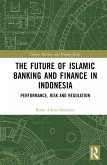What is a contract in Islam? Is it an aspect of Muslim religion or of secular life? How much has it changed over the centuries? Undertaking a search that spans revelation, legal tradition, and the reality of the Muslim world, this book explores the Islamic contract ('aqd in Arabic) as a 'city' at the crossroads of convergent paths of translation, comparison, and law in context.
In particular, the book shows that only by re-orienting traditional categories of Western law-religion toward the East can an alternative path of discovery for the 'aqd be advanced. Hence, through a fortuitous encounter with an Arab Girl, the reader will (re-)visit the Temple of Western modernity and explore a city ruled by Towers of dialectical forces, carrying a hermeneutical Ring that combines dialectics, Islamic studies, and media theory. This interdisciplinary approach will not only enrich our knowledge of the 'aqd but also make it more understandable as a cultural and social construction to which both Muslims and non-Muslims have participated in forging its multiple representations. By inviting the readers 'to know who they are' while looking at her, the Arab Girl is already waiting for us to listen to the Islamic contract in a new way.
By applying a distinctive law and religion approach to the study of the contract in Islam, the book provides a comprehensive exploration of a topic that is of interest to legal and economic comparatists as well as to readers in anthropology, Islamic and cultural studies, and it is also of topical meaning for today's international lawyers and the operators of an increasingly multicultural and transnational market.
In particular, the book shows that only by re-orienting traditional categories of Western law-religion toward the East can an alternative path of discovery for the 'aqd be advanced. Hence, through a fortuitous encounter with an Arab Girl, the reader will (re-)visit the Temple of Western modernity and explore a city ruled by Towers of dialectical forces, carrying a hermeneutical Ring that combines dialectics, Islamic studies, and media theory. This interdisciplinary approach will not only enrich our knowledge of the 'aqd but also make it more understandable as a cultural and social construction to which both Muslims and non-Muslims have participated in forging its multiple representations. By inviting the readers 'to know who they are' while looking at her, the Arab Girl is already waiting for us to listen to the Islamic contract in a new way.
By applying a distinctive law and religion approach to the study of the contract in Islam, the book provides a comprehensive exploration of a topic that is of interest to legal and economic comparatists as well as to readers in anthropology, Islamic and cultural studies, and it is also of topical meaning for today's international lawyers and the operators of an increasingly multicultural and transnational market.








